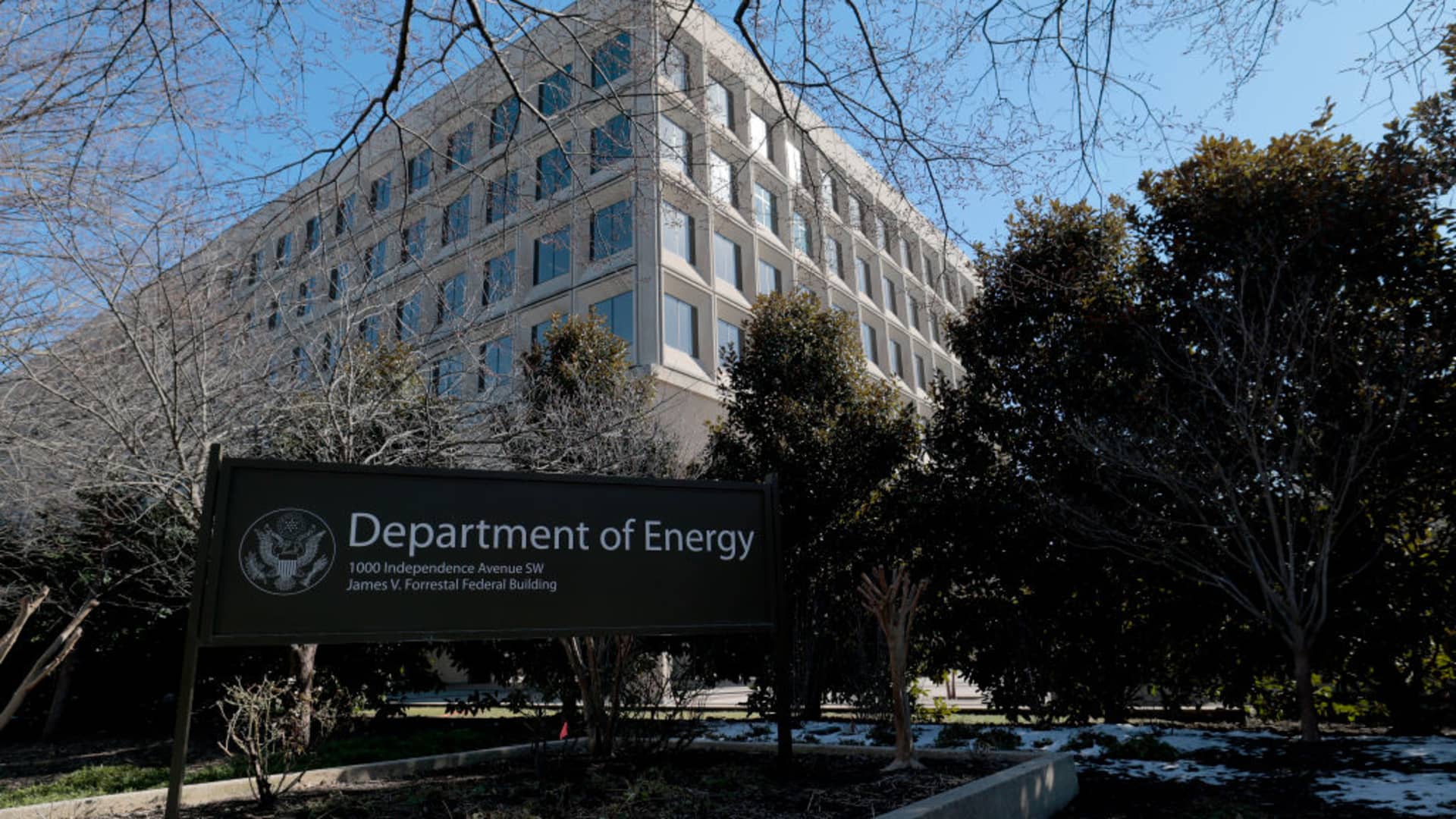The U.S. Department of Energy on Feb. 14, 2025 in Washington, D.C.
Anna Moneymaker | Getty Images News | Getty Images
California has paused rebate programs offering thousands of dollars to consumers who make their homes and appliances more energy efficient due to a Trump administration freeze on federal funding.
While a handful of other states also recently halted their programs, California is the largest state to delay a rollout so far — putting $582 million earmarked for consumers and program administration at risk.
California had issued its first rebate check to consumers in February, according to the state’s Energy Commission.
“Many states were just getting started on their programs, and suddenly they’re tossed into turmoil,” said Lowell Ungar, director of federal policy at the American Council for an Energy-Efficient Economy.
The programs in question, Home Energy Rebates, were created through the Inflation Reduction Act. President Biden signed it into law in 2022.
The law allocated up to $8.8 billion of federal funds for states, territories and the District of Columbia to disburse to consumers in the form of rebates.
Consumers were provided up to $8,000 of Home Efficiency Rebates and up to $14,000 of Home Electrification and Appliance Rebates, per federal law. Maximum amounts vary per household, depending on factors like income eligibility.
The rebates aim to reduce the cost of home upgrades like installing insulation and heat pumps or buying efficient appliances like electric stoves — with an eye to also reducing consumers’ energy bills and cutting planet-warming carbon emissions.
More from Personal Finance:
Congress’ proposed cuts may jeopardize Medicaid
Canada, Mexico tariffs create ‘ripple effects’ on consumer prices
Social Security plans to cut about 7,000 workers
All states except South Dakota had applied for the federal funds. The U.S. Department of Energy approved those applications, and states were in various phases of rollout by the end of the Biden administration.
However, the Trump administration on Jan. 27 put a freeze on the disbursement of federal funds that conflict with the president’s agenda, including initiatives related to green energy and climate change.
The fate of that freeze is up in the air as courts weigh legal challenges to the policy.
The U.S. Department of Energy didn’t return a request from CNBC for comment.
The California Energy Commission — which had launched an $80 million first phase of its home energy rebate program in the fall — paused its program on Feb. 25, according to a California Energy Commission website.
The pause will remain in place “until the Trump Administration provides additional information on the funding,” Commission staff wrote in an e-mailed statement.
California was approved for the second-largest tranche of funding for the energy rebate programs, behind only Texas. (The U.S. Energy Department awarded $689 million to Texas, according to an archived federal website.)
The Texas State Energy Conservation Office didn’t return a request for comment on the status of its program.
Since Jan. 31, California hasn’t been able to successfully draw down funds for administrative costs to run its rebate program, according to a California Energy Commission website. The U.S. Energy Department has also removed information about Home Energy Rebate programs from its website, the CEC said.
Not all states have paused their programs, however.
For example, officials in Maine and North Carolina recently confirmed to CNBC that funding through their rebate programs remains available — for now.
The North Carolina Department of Environmental Quality is “closely watching any federal actions that may change the operations of the Energy Saver NC program,” a spokesperson said in an e-mailed statement.
Different states may have “different risk tolerances” when it comes to administering these programs and issuing rebates when it’s unclear if they’ll eventually be reimbursed, Ungar said.

 Blog Post1 week ago
Blog Post1 week ago
 Economics1 week ago
Economics1 week ago
 Finance1 week ago
Finance1 week ago
 Economics1 week ago
Economics1 week ago
 Economics1 week ago
Economics1 week ago
 Personal Finance1 week ago
Personal Finance1 week ago
 Accounting1 week ago
Accounting1 week ago
 Economics1 week ago
Economics1 week ago










